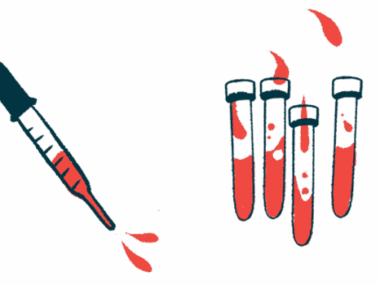How Stress and Cushing’s Disease Forced Me to Rebuild My Career
What to do when facing the dilemma of finding a good job when health is at stake
Written by |

After having transsphenoidal pituitary surgery to remove a pituitary tumor in November 2015, followed by a gamma knife procedure a month later to remove the residual part of the tumor, I was closely monitored by my neurosurgeon. For the next three years, I would routinely meet with him after having MRIs to monitor my pituitary gland to see if there was any recurrent growth post-op.
My final visit with the neurosurgeon was in November 2018, when he informed me that I was now entering into the monitoring phase of treatment, due to having normal MRIs following surgery. Instead of having MRIs every six months, I would now only need them once a year. The gamma knife procedure was a success. He cleared me to return to all activities, but told me to limit the amount of stress in my life.
In our first meeting, we discussed my job as an investigator for the state. The demands of the job are overwhelming. My neurosurgeon told me, “With your condition, and the amount of work-related stress you experience on a regular basis, there is a strong possibility of the tumor returning.” Limiting and avoiding stressful activities were highly encouraged if I wanted to maintain a good quality of life.
Analyzing stress and Cushing’s disease in my life
Cushing’s disease was one of the secondary issues I was dealing with due to the lack of hormones being produced in my body. Cushing’s symptoms are exacerbated when the body is dealing with abnormal levels of stress. In understanding the risk factors, one thing became clear: Better stress management was a necessity if I wanted to be healthy again. This required me to take inventory of all the areas in my life that were stressors and identify ways to reduce or eliminate them.
The first stressor I identified was my career. My education and experience primarily have been in social services. Due to the circumstances I was now facing, I had to make a pivotal decision about the career field that was most familiar to me and that provided enough income to sustain my household. It was either that or choose work that was both less stressful and less lucrative.
Although I knew which choice had to be made, it wasn’t an easy decision. Before being diagnosed, I was in line for a major promotion. However, my life and health were more important, so with the support of my wife and the rest of my family, I chose to walk away.
However, the jobs I was finding that seemed to provide a less stressful environment did not provide the financial stability I needed to take care of my home. Needless to say, this was a rough part of my recovery for a couple of reasons.
Firstly, I was having a hard time finding jobs I felt would provide a good work-life balance. I didn’t want to be in a place where mental health practices were not built in, such as time off for mental healthcare, consideration for employees dealing with rare diseases, and education about managing on-the-job stress, among others.
Secondly, although my wife understood what was going on with me, an additional burden was being placed on her to pick up the slack, which she did without complaint. However, it was extremely hard for me to watch her overextend herself when there wasn’t much I could do to help.
Finding a solution
The instinct to contribute more to my home kicked in, and I started to take any position I could find. I realize now that due to my health issues, those decisions were not my best, because they landed me right back in stressful environments, which prolonged my recovery. After cycling through three jobs in eight months, at the end of 2019, I started working for Amazon as a part-time employee. The money wasn’t ideal but I didn’t have to deal with any high-level stress, so it worked at the time.
Rebuilding a career around a sudden life change can be very difficult for everyone involved. For me, the sacrifices I made to ensure that I would still be alive today were worth it. Fast-forward two years, and I am thriving in all areas of my life!
Why am I sharing this with you? Because I want to encourage you to put your health first. Make the hard decisions to provide yourself with a better chance of living, and eventually, everything else will fall into place. Please remember that health is wealth; without good health, you can’t obtain anything else you are striving for. Be well.
Note: Cushing’s Disease News is strictly a news and information website about the disease. It does not provide medical advice, diagnosis, or treatment. This content is not intended to be a substitute for professional medical advice, diagnosis, or treatment. Always seek the advice of your physician or other qualified health provider with any questions you may have regarding a medical condition. Never disregard professional medical advice or delay in seeking it because of something you have read on this website. The opinions expressed in this column are not those of Cushing’s Disease News or its parent company, Bionews, and are intended to spark discussion about issues pertaining to Cushing’s.







Leave a comment
Fill in the required fields to post. Your email address will not be published.